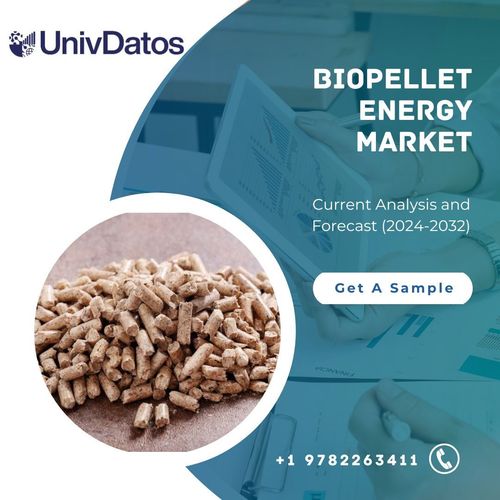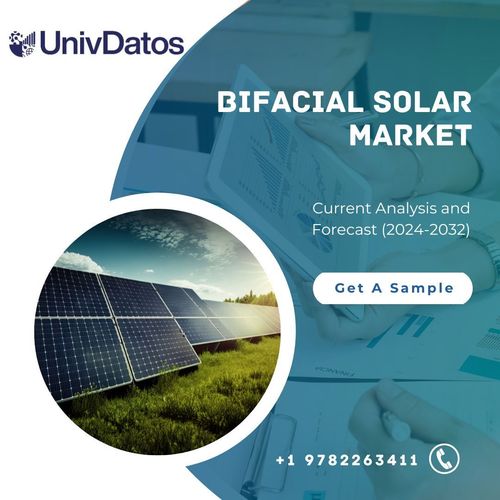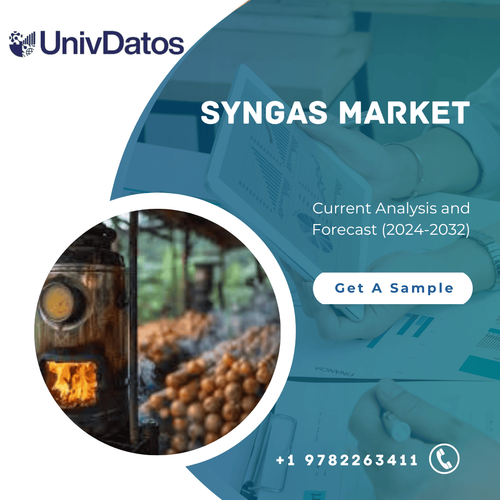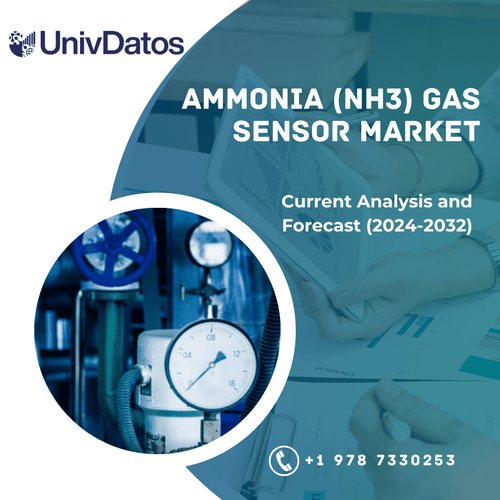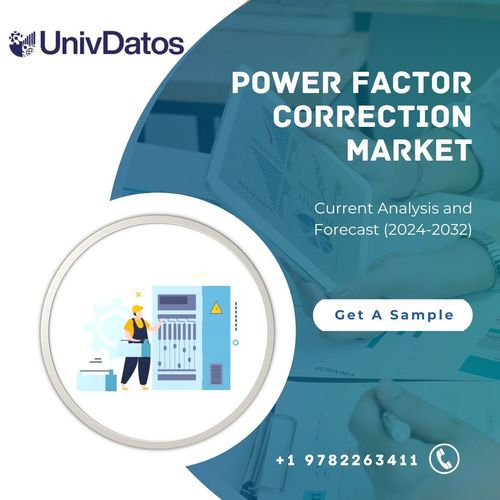Produced Water Treatment Market: Current Analysis and Forecast (2023-2030)
Emphasis on Location (Onshore, and Offshore); Technology (Physical, Biological, Membrane, Chemical, and other treatment); and Region/Country
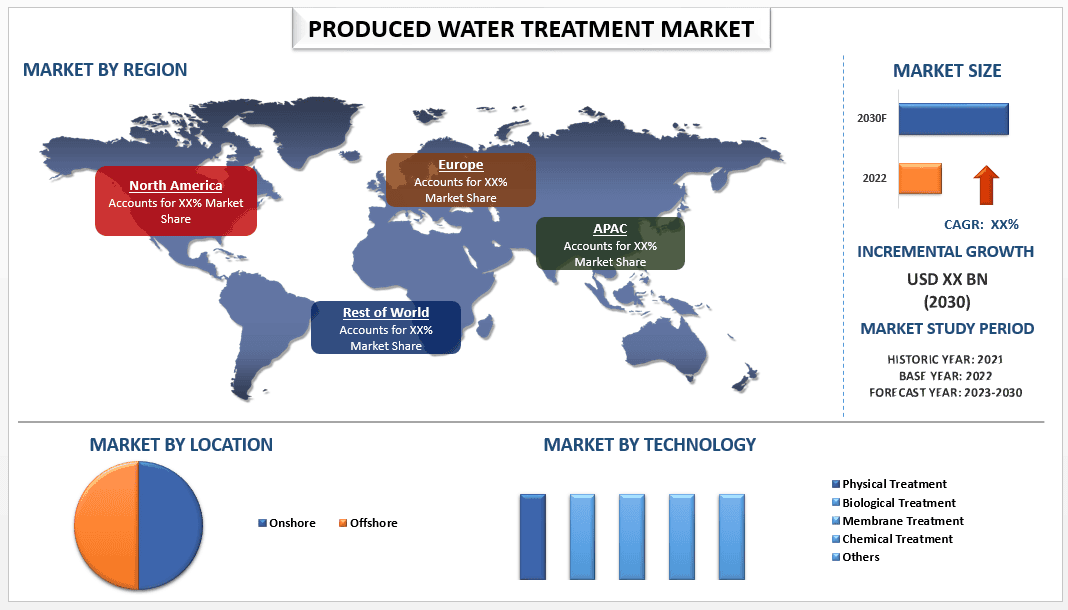
The Produced Water Treatment Market is expected to grow at a strong CAGR during the forecast period. It is mainly owing to the government requirements to reduce industrial waste and increasing consumption of Oil & Gas globally. Increasing environmental concerns regarding industrial waste is acting as a catalyst for the growth of the produced water treatment market during the projected period. The major market driver of the global produced water treatment market is the strict rules and regulations governing produced water treatment. The water produced must be treated so that it can be used for non-potable purposes. Rising demand for oil and gas in different countries, growth in downstream activities, and economic utilization of shale gas are expected to have a positive impact on the produced water treatment market. Low and volatile oil prices have significantly reduced oil and gas investment. This is a significant constraint for the water treatment market.
As environmental concerns regarding the treatment of wastewater generated from the petroleum industry grow, such trends are leading to increased opportunities for companies in the produced water treatment market. SEM, a UK company providing wastewater treatment solutions, has developed DAF (Dissolved Air Flotation) technology, an alternative clarification process ideal for treating raw water containing light particles such as algae and color-causing organics. It gained popularity after its introduction. Dissolved air flotation is a well-known mud-thickening process that can be used to remove oil and grease from product water. More and more companies are turning to DAF because it helps to achieve low effluent turbidity than settling.
Some of the major players operating in the market are Siemens AG, Aker Solutions, Alderly Plc, Schlumberger Limited, CETCO Energy Services, Veolia Water Technologies, Aquatech International L.L.C, Evoqua Water Technologies LLC, Dow Water & Process Solutions, and Xylem Inc.
Several M&As along with partnerships have been undertaken by these players to facilitate customers with hi-tech and innovative products/technologies.
Insights Presented in the Report
“Amongst Location, the Offshore segment held a dominating share of the market in 2022”
Based on Location, The Produced Water Treatment market is divided into Onshore, and Offshore segments. The Offshore segment acquired a majority share in the Produced Water Treatment market and is expected to showcase a substantial growth rate during the forecast period. Offshore oil exploration and extraction activities are rising in the USA. The USA has numerous old oil wells that need refurbishment, modernization, and upgradation. The increasing offshore oil activities in the world are positively affecting the produced water treatment market during the forecast period.
“Amongst Technology, the Membrane Treatment segment is expected to grow at a significant rate in Produced Water Treatment Market during the forecast period”
Based on Technology, the Produced Water Treatment market is segmented into Physical, Biological, Membrane, Chemical, and other treatment segments. The Physical Treatment segment captured the biggest market share in the Produced Water Treatment market and the Membrane Treatment segment is expected to showcase the fastest growth during the forecast period. The membrane Treatment segment is increasing as companies are using membrane bioreactors to effectively remove the total petroleum hydrocarbons from produced water, resulting in a significant improvement in effluent quality.
Produced Water Treatment Market Report Coverage
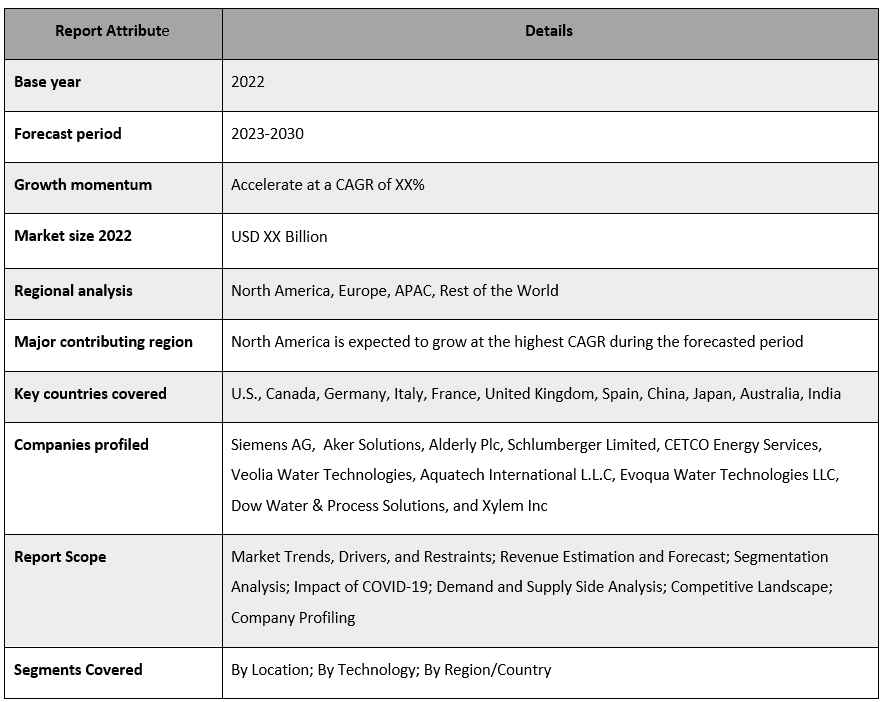
“North America dominated the Produced Water Treatment market in 2022”
North America registered the highest market share in the Produced Water Treatment market and is expected to register a substantial CAGR in the forecasted period. It is mainly owing to the expansion and upgradation of oil & gas projects taking place in the USA and Canada. Moreover, favorable government policies, regulations, and investments in the oil and gas sector set by various countries are driving the market. For Instance, On February 10, 2023, the U.S. Department of Energy’s Office of Fossil Energy and Carbon Management announced more than $18 million in funding for research and development projects that focus on the characterization, treatment, and management of produced water, or wastewater associated with oil & natural gas development and production.
Reasons to buy this report:
- The study includes market sizing and forecasting analysis validated by authenticated key industry experts.
- The report presents a quick review of overall industry performance at one glance.
- The report covers an in-depth analysis of prominent industry peers with a primary focus on key business financials, product portfolios, expansion strategies, and recent developments.
- Detailed examination of drivers, restraints, key trends, and opportunities prevailing in the industry.
- The study comprehensively covers the market across different segments.
- Deep dive regional level analysis of the industry.
Customization Options:
The global Produced Water Treatment market can further be customized as per the requirement or any other market segment. Besides this, UMI understands that you may have your own business needs, hence feel free to connect with us to get a report that completely suits your requirements.
Table of Contents
Research Methodology for the Produced Water Treatment Market Analysis (2023-2030)
Analyzing the historical market, estimating the current market, and forecasting the future market of the global Produced Water Treatment market were the three major steps undertaken to create and analyze the adoption of Produced Water Treatment in major regions globally. Exhaustive secondary research was conducted to collect the historical market numbers and estimate the current market size. Secondly, to validate these insights, numerous findings and assumptions were taken into consideration. Moreover, exhaustive primary interviews were also conducted, with industry experts across the value chain of the global Produced Water Treatment market. Post assumption and validation of market numbers through primary interviews, we employed a top-down/bottom-up approach to forecasting the complete market size. Thereafter, market breakdown and data triangulation methods were adopted to estimate and analyze the market size of segments and sub-segments of the industry pertains to. Detailed methodology is explained below:
Analysis of Historical Market Size
Step 1: In-Depth Study of Secondary Sources:
Detail secondary study was conducted to obtain the historical market size of the Produced Water Treatment market through company internal sources such as annual reports & financial statements, performance presentations, press releases, etc., and external sources including journals, news & articles, government publications, competitor publications, sector reports, third-party database, and other credible publications.
Step 2: Market Segmentation:
After obtaining the historical market size of the Produced Water Treatment market, we conducted a detailed secondary analysis to gather historical market insights and share for different segments & sub-segments for major regions. Major segments are included in the report as Location and Technology. Further country-level analyses were conducted to evaluate the overall adoption of testing models in that region.
Step 3: Factor Analysis:
After acquiring the historical market size of different segments and sub-segments, we conducted a detailed factor analysis to estimate the current market size of the Produced Water Treatment market. Further, we conducted factor analysis using dependent and independent variables such as Location and Technology of the Produced Water Treatment market. A thorough analysis was conducted for demand and supply-side scenarios considering top partnerships, mergers and acquisitions, business expansion, and product launches in the Produced Water Treatment market sector across the globe.
Current Market Size Estimate & Forecast
Current Market Sizing: Based on actionable insights from the above 3 steps, we arrived at the current market size, key players in the global Produced Water Treatment market, and market shares of the segments. All the required percentage shares split, and market breakdowns were determined using the above-mentioned secondary approach and were verified through primary interviews.
Estimation & Forecasting: For market estimation and forecast, weights were assigned to different factors including drivers & trends, restraints, and opportunities available for the stakeholders. After analyzing these factors, relevant forecasting techniques i.e., the top-down/bottom-up approach were applied to arrive at the market forecast for 2030 for different segments and sub-segments across the major markets globally. The research methodology adopted to estimate the market size encompasses:
- The industry’s market size, in terms of revenue (USD) and the adoption rate of the Produced Water Treatment market across the major markets domestically
- All percentage shares, splits, and breakdowns of market segments and sub-segments
- Key players in the global Produced Water Treatment market in terms of technology offered. Also, the growth strategies adopted by these players to compete in the fast-growing market
Market Size and Share Validation
Primary Research: In-depth interviews were conducted with the Key Opinion Leaders (KOLs) including Top Level Executives (CXO/VPs, Sales Head, Marketing Head, Operational Head, Regional Head, Country Head, etc.) across major regions. Primary research findings were then summarized, and statistical analysis was performed to prove the stated hypothesis. Inputs from primary research were consolidated with secondary findings, hence turning information into actionable insights.
Split of Primary Participants in Different Regions
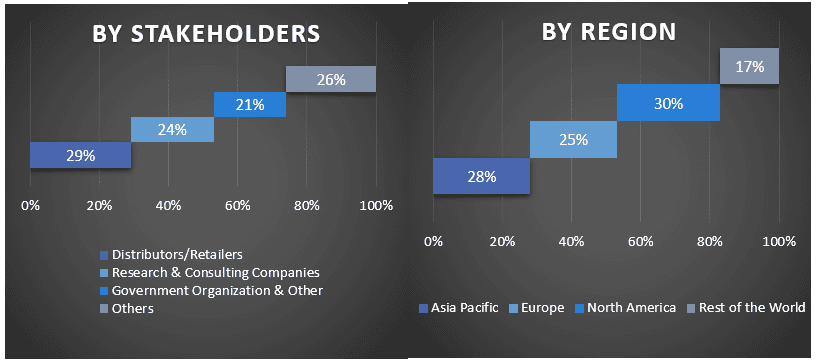
Market Engineering
The data triangulation technique was employed to complete the overall market estimation and to arrive at precise statistical numbers for each segment and sub-segment of the global Produced Water Treatment market. data was split into several segments & sub-segments post studying various parameters and trends in the areas of Location and Technology in the global Produced Water Treatment market.
The main objective of the Global Produced Water Treatment Market Study
The current & future market trends of the global Produced Water Treatment market were pinpointed in the study. Investors can gain strategic insights to base their discretion for investments on the qualitative and quantitative analysis performed in the study. Current and future market trends determined the overall attractiveness of the market at a regional level, providing a platform for the industrial participant to exploit the untapped market to benefit from a first-mover advantage. Other quantitative goals of the studies include:
- Analyze the current and forecast market size of the Produced Water Treatment market in terms of value (USD). Also, analyze the current and forecast market size of different segments and sub-segments
- Segments in the study include areas of Location and Technology.
- Define and analysis of the regulatory framework for the Produced Water Treatment industry
- Analyze the value chain involved with the presence of various intermediaries, along with analyzing customer and competitor behaviors of the industry
- Analyze the current and forecast market size of the Produced Water Treatment market for the major regions
- Major countries of regions studied in the report include Asia Pacific, Europe, North America, and the Rest of the World
- Company profiles of the Produced Water Treatment market and the growth strategies adopted by the market players to sustain in the fast-growing market
- Deep dive regional level analysis of the industry
Related Reports
Customers who bought this item also bought

